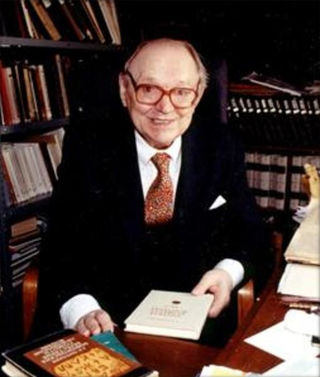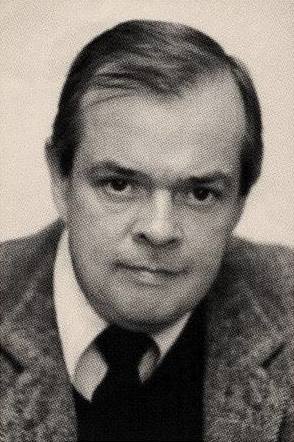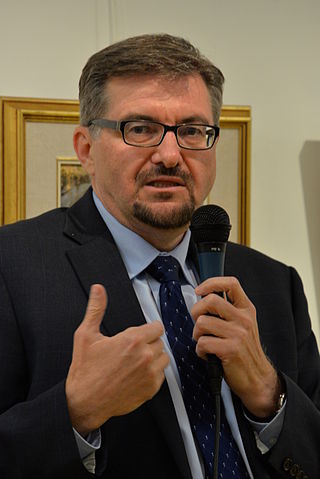Related Research Articles
Slavic or Slavonicstudies, also known as Slavistics, is the academic field of area studies concerned with Slavic peoples, languages, literature, history, and culture. Originally, a Slavist or Slavicist was primarily a linguist or philologist researching Slavistics. Increasingly, historians, social scientists, and other humanists who study Slavic cultures and societies have been included in this rubric.

The University of Alberta is a public research university located in Edmonton, Alberta, Canada. It was founded in 1908 by Alexander Cameron Rutherford, the first premier of Alberta, and Henry Marshall Tory, the university's first president. It was enabled through the Post-secondary Learning Act. The university is considered a "comprehensive academic and research university" (CARU), which means that it offers a range of academic and professional programs that generally lead to undergraduate and graduate level credentials.
American studies or American civilization is an interdisciplinary field of scholarship that examines American literature, history, society, and culture. It traditionally incorporates literary criticism, historiography and critical theory.

Omeljan Yosypovych Pritsak was the first Mykhailo Hrushevsky Professor of Ukrainian History at Harvard University and the founder and first director (1973–1989) of the Harvard Ukrainian Research Institute.
The Volhynians were an East Slavic tribe of the Early Middle Ages and the Principality of Volhynia in 987–1199.

James E. Mace was an American historian, professor, and researcher of the Holodomor.

Michèle Lamont is a Canadian sociologist who is the Robert I. Goldman Professor of European Studies and a professor of Sociology and African American Studies at Harvard University. She is a contributor to the study of culture, inequality, racism and anti-racism, the sociology of morality, evaluation and higher education, and the study of cultural and social change. She is the recipient of the Gutenberg Award and the Erasmus award, for her "devoted contribution to social science research into the relationship between knowledge, power, and diversity." She has received honorary degrees from five countries. and been elected to the British Academy, Royal Society of Canada, Chevalier de l’Ordre des Palmes académiques, and the Sociological Research Association. She served as president of the American Sociological Association from 2016 to 2017. In 2024, she was elected to the American Philosophical Society.

The Eastern Catholic clergy of the Ukrainian Greek Catholic Church were a hereditary tight-knit social caste that dominated Ukrainian society in Western Ukraine from the late eighteenth until the mid-twentieth centuries, following the reforms instituted by Joseph II, Emperor of Austria. Because, like their Eastern Orthodox brethren, married men in the Ukrainian Catholic Church could become priests, they were able to establish "priestly dynasties", often associated with specific regions, for many generations. Numbering approximately 2,000-2,500 by the 19th century, priestly families tended to marry within their group, constituting a tight-knit hereditary caste. In the absence of a significant culturally and politically active native nobility, and enjoying a virtual monopoly on education and wealth within western Ukrainian society, the clergy came to form that group's native aristocracy. The clergy adopted Austria's role for them as bringers of culture and education to the Ukrainian countryside. Most Ukrainian social and political movements in Austrian-controlled territory emerged or were highly influenced by the clergy themselves or by their children. This influence was so great that western Ukrainians were accused by their Polish rivals of wanting to create a theocracy in western Ukraine. The central role played by the Ukrainian clergy or their children in western Ukrainian society would weaken somewhat at the end of the nineteenth century but would continue until the Soviet Union forcibly dissolved the Ukrainian Greek Catholic Church in Ukrainian territories in the mid-twentieth century.

Serhii Mykolayovych Plokhy is a historian and author. He is the Mykhailo Hrushevsky professor of Ukrainian history at Harvard University, where he also serves as the director of the Harvard Ukrainian Research Institute.
Gordon Walter Semenoff, ,, is a theoretical physicist and professor of physics at the University of British Columbia, Canada. He is known for his research on quantum mechanics, quantum field theory, statistical mechanics and string theory and is particularly famous for his co-invention, together with Antti Niemi, of the parity anomaly in odd-dimensional gauge field theories and for his pioneering work on graphene. He is also well known for development of thermal field theory, the application of index theorems and their generalizations in quantum field theory and string theory, notably with respect to the duality between string theories and gauge field theories.

Padma Desai was an Indian-American development economist who was the Gladys and Roland Harriman Professor of comparative economic systems and director of the Center for Transition Economies at Columbia University. Known for her scholarship on Soviet and Indian industrial policy, she was awarded the Padma Bhushan in 2009.

John-Paul Himka is an American-Canadian historian and retired professor of history of the University of Alberta in Edmonton. Himka received his BA in Byzantine-Slavonic Studies and Ph.D. in History from the University of Michigan in 1971 and 1977 respectively. The title of his Ph.D. dissertation was Polish and Ukrainian Socialism: Austria, 1867–1890. As a historian Himka was a Marxist in the 1970s–80s, but became influenced by postmodernism in the 1990s. In 2012 he defined his methodology in history as "eclectic".

Bohdan Krawchenko is the former director of the Canadian Institute of Ukrainian Studies of the University of Alberta, Canada. and former vice-rector of the National Academy for Public Administration under the President of Ukraine in Kyiv, Ukraine.

Frank Edvard Sysyn is an American historian of Ukrainian origin. His grandmother was from Ukraine.
Peter "Petro" Jacyk was a Canadian entrepreneur of Ukrainian descent and a philanthropist.

Zenon Eugene Kohut is a Canadian historian specializing in early modern Ukrainian history. He retired as professor emeritus, University of Alberta. From 1992 to 2014 Kohut worked at the University of Alberta's Canadian Institute of Ukrainian Studies where he served as the first head of the Stasiuk Program for the Study of Contemporary Ukraine and acted as editor of the Journal of Ukrainian Studies (1990–92). He was acting director (1993) and director (1994–2012) of the Program.

Tamara Ivanivna Hundorova is a Ukrainian literary critic, culturologist and writer. She is a professor and head of the Theory of Literature Department at the Institute of Literature of the National Academy of Sciences of Ukraine, and a professor and dean at the Ukrainian Free University.

This is a select bibliography of English-language books and journal articles about the history of Ukraine. Book entries have references to journal reviews about them when helpful and available. Additional bibliographies can be found in many of the book-length works listed below. See the bibliography section for several additional book and chapter-length bibliographies from academic publishers and online bibliographies from historical associations and academic institutions.

Ivan Pavlovych Lysiak Rudnytsky was a historian of Ukrainian socio-political thought, political scientist and scholar publicist. He significantly influenced Ukrainian historical and political thought by writing over 200 historical essays, commentaries, and reviews, and also serving as editor of several book publications. He has been praised as one of the most influential Ukrainian historians of the twentieth century. He is sometimes referred to as Ivan Łysiak-Rudnytsky, but the surname he used was his mother’s name Rudnytsky.